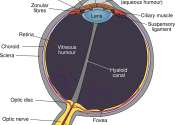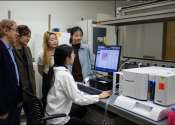Last update:
Oncology & Cancer news
Oncology & Cancer
Study identifies driver of liver cancer that could be target for treatment
Metabolic diseases like obesity can increase the risk of developing liver cancer, research has shown. But how one disease predisposes to the other is unclear. In a new study, Yale researchers uncovered a key role played by ...
10 hours ago
0
2
Oncology & Cancer
Analysis identifies 50 new genomic regions associated with kidney cancer risk
In a new analysis of genetic susceptibility to kidney cancer, an international team of researchers has identified 50 new areas across the genome that are associated with the risk of developing kidney cancer. These insights ...
10 hours ago
0
15
Biomarkers identified for successful treatment of bone marrow tumors
CAR T cell therapy has proven effective in treating various hematological cancers. However, not all patients respond equally well to treatment. In a clinical study, researchers from the University of Leipzig Medical Center ...
10 hours ago
0
34

Study supports gene-directed management of BRCA1 and BRCA2 gene carriers in Singapore
A team of clinician-scientists have conducted the largest study done to date of BRCA1 and BRCA2 (BReast CAncer Gene 1 and 2) carriers in an Asian population and refined breast and ovarian cancer risk estimates for this population. ...
7 hours ago
0
0

Breast cancer rates rising among Canadian women in their 20s, 30s and 40s
Rates of breast cancer in women under the age of 50 are rising in Canada according to a study which showed an increase in breast cancer diagnoses among females in their Twenties, Thirties, and Forties.
7 hours ago
0
5

Targeting specific protein regions offers a new treatment approach in medulloblastoma
Medulloblastoma (the most common malignant childhood brain tumor) is separated into four molecular groups, with Group 3 bearing the worst prognosis. By studying EP300 and CBP, critical proteins in Group 3 medulloblastoma ...
Apr 25, 2024
0
11
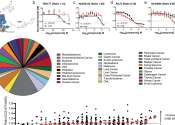
Study finds vitamin D alters mouse gut bacteria to give better cancer immunity
Researchers at the Francis Crick Institute, the National Cancer Institute (NCI) of the U.S. National Institutes of Health (NIH) and Aalborg University in Denmark, have found that vitamin D encourages the growth of a type ...
Apr 25, 2024
0
6
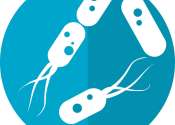
Blocking gene may halt growth of breast cancer cells
Shutting down a gene called PRMT5 stopped metastatic estrogen receptor-positive (ER+) breast cancer cells from growing after they acquired resistance to a standard therapy known as CDK4/6 inhibitors, UT Southwestern Medical ...
Apr 25, 2024
0
15
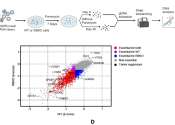
Study reveals tai chi benefits for sleep quality in advanced lung cancer patients
A research team from the School of Nursing, LKS Faculty of Medicine of the University of Hong Kong (HKUMed), found positive effects of tai chi and aerobic exercise on sleep quality, psychological well-being, physical function, ...
Apr 25, 2024
0
17

Researchers create an AI-powered digital imaging system to speed up cancer biopsy results
University of Waterloo researchers have invented a digital medical imaging system that significantly improves the cancer detection process to deliver immediate results and enable swift, effective treatment for all types of ...
Apr 25, 2024
0
5
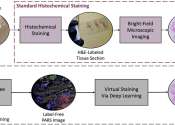
Cancer drug trial provides lessons for future
A cancer drug was found to be ineffective in preventing recurrence of kidney cancer in patients who recently underwent tumor removal surgery, according to a clinical trial published in the Journal of Clinical Oncology.
Apr 25, 2024
0
0

Cancer survivors reporting loneliness experience higher mortality risk, study shows
A new study led by researchers at the American Cancer Society (ACS) showed people surviving cancer who reported feeling more lonely experienced a higher mortality risk compared to survivors reporting low or no loneliness.
Apr 25, 2024
0
0

Mortality up for breast cancer diagnosed five to 10 years after childbirth
Young-onset breast cancer (YOBC) with germline BRCA pathogenic variants (PVs) is associated with an increased risk for all-cause mortality if diagnosed within 10 years after childbirth, according to a study published online ...
Apr 25, 2024
0
0

CD7 CAR T-cell therapy, stem-cell transplant beneficial for CD7-positive tumors
For patients with relapsed or refractory CD7-positive leukemia or lymphoma, sequential CD7 chimeric antigen receptor (CAR) T-cell therapy followed by haploidentical hematopoietic stem-cell transplantation (HSCT) is safe and ...
Apr 25, 2024
0
1

Microbiota B. fragilis-secreted BFT-1 promotes breast cancer cell stemness and chemoresistance: Study
Tumor-resident microbiota in breast cancer promotes both the initiation and progression of cancer. However, the potential of targeting microbiota to enhance the efficacy of breast cancer treatment has not been comprehensively ...
Apr 25, 2024
0
1

Cancer cases in younger people are on the rise
In the United States this year alone, there will be an anticipated 2,001,140 new cancer cases—leading to an estimated 611,720 related deaths. That's 5,480 new cases and 1,680 deaths every day. And, according to a recent ...
Apr 25, 2024
0
0

A closed-loop drug-delivery system could improve chemotherapy
When cancer patients undergo chemotherapy, the dose of most drugs is calculated based on the patient's body surface area. This is estimated by plugging the patient's height and weight into an equation, dating to 1916, that ...
Apr 24, 2024
0
19
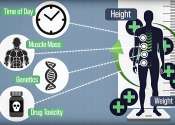
New potential avenues for cancer therapies through RNA-binding proteins
A new paper describes the role of two RNA-binding proteins in the development of sarcoma and carcinoma cancers, highlighting the important and emerging role of RNA-binding proteins in cancer research and offering a new avenue ...
Apr 24, 2024
0
2
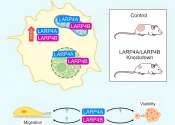
Newly discovered mechanism helps tumor cells evade the immune system early on
Tumors actively prevent the formation of immune responses by cytotoxic T cells, which are essential in combating cancer. Researchers at the Technical University of Munich (TUM) and the Ludwig-Maximilians-Universität München ...
Apr 24, 2024
0
4

Mini-colons advance colorectal cancer research
In a breakthrough for cancer research, scientists at EPFL have created lab-grown mini-colons that can accurately mimic the development of colorectal tumors, offering a powerful new tool for studying and testing treatments ...
Apr 24, 2024
0
5





































